Special Report
The Year Lobbyists Influenced Government Policy the Most Since 2008
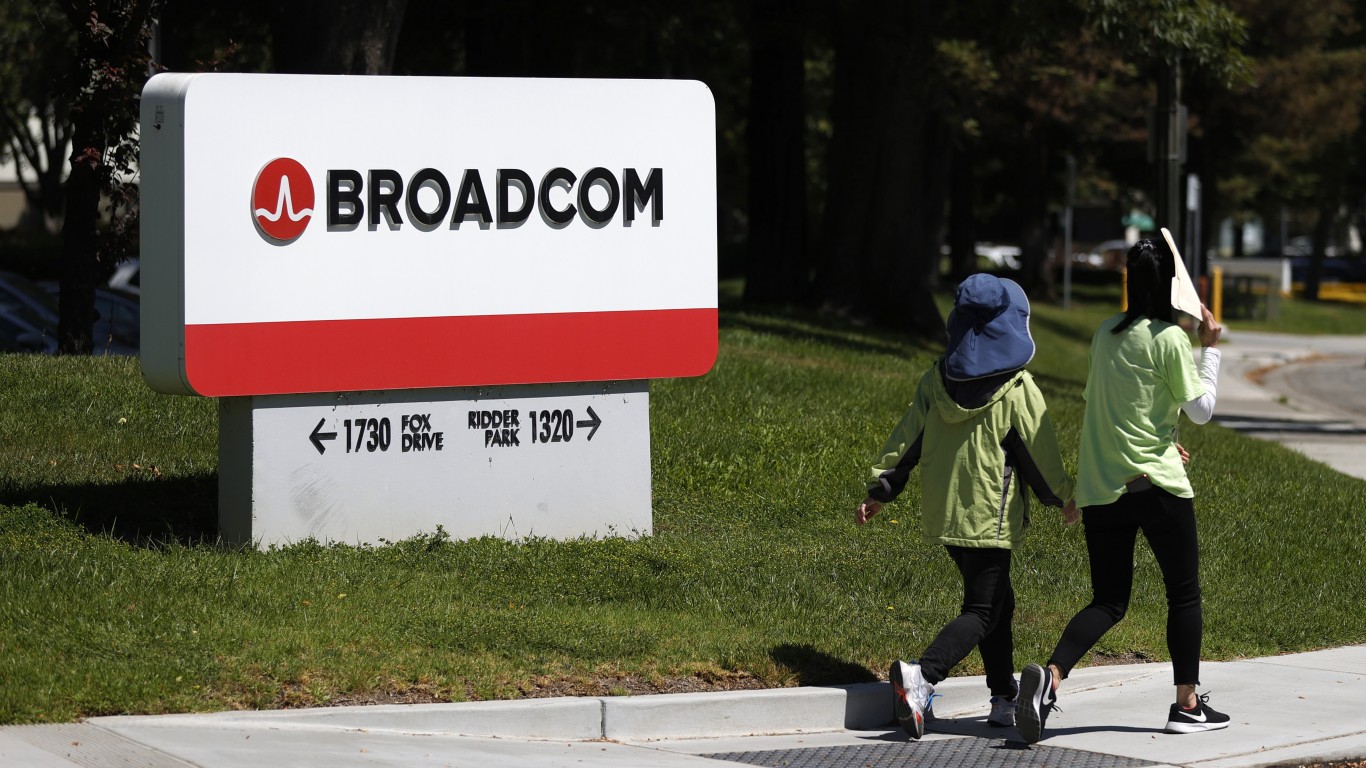
Published:

The COVID-19 pandemic cut the revenue and profits of several business sectors, especially retail and food service. One industry, however, reported growing revenue during the pandemic – the lobbying industry.
OpenSecrets, an organization that tracks lobbying data and campaign contributions, recorded $3.7 billion in lobbying revenue in 2022, the highest total since 1998.
Each year, companies, labor unions, trade associations, and advocacy and special interest groups give billions to lobbying firms to sway Congress and federal agencies to pass – or not pass – legislation affecting their businesses. Many of these powerful lobbying firms work from offices along Washington, D.C.’s legendary K Street. Some companies keep lobbying efforts in-house. All told, more than 12,000 lobbyists roamed the halls of Congress in 2021.
To identify the years in which lobbyists spent the most to influence the government, 24/7 Wall St. reviewed trends in spending data from OpenSecrets. Data on the number of lobbyists each year and the largest deal in a particular year also came from OpenSecrets.
Not surprisingly, industries plowing the most dollars to lobbying firms were the mainstay manufacturers, unions, financial companies, technology outfits, and trade organizations. The top spender in 2021 was the U.S. Chamber of Commerce at $66.4 million, followed by the National Association of Realtors at $44 million. Such groups also give money to lobby individual members of Congress. (These are the companies and interest groups that spend the most on lobbying in 2021: who spends the most lobbying the U.S. government.)
In 2021, companies affected most by the pandemic, such as cruise lines, increased their lobbying budgets in an attempt to relax COVID-19 restrictions and grab a piece of pandemic-related stimulus money. After spending just $10,000 in 2019, Norwegian Cruise Line spent $1 million last year to convince Congress to ease COVID-19 guidelines.
Despite the increase in spending of some industries of companies, most have not spent near what tech companies have spent in 2021 and before. Between 2015 and 2021, chip maker Qualcomm led all companies in expenditures to lobby Congress on any number of issues, including more visas for high-tech workers and a government infusion for the semiconductor industry. (Yet these are 14 big businesses run by the U.S. government.)
Lobbying efforts also came from obscure groups, such the New California Republic Co. In 2020, the organization spent $5.5 million in an attempt to split California into two states. In light of the fact the Golden State remains as one, the money wasn’t well spent.
Click here to see the year lobbyists influenced gov’t policy the most since 2008

2008
> Total spent: $3,303,166,893 — #9 most since 2008
> Number of lobbyists: 14,125
> Largest lobbying contract: $7,666,667 (Victims of Terrorism – Beirut/Lebanon/E Africa)
In 2008, Hezbollah, a Shitte political party and militant group, took over central Beirut, leading to sectarian violence between the Sunnis and Shiites, two warring religious factions. Iran-backed Hezbollah opposes Israel and western influence in the Middle East. According to OpenSecrets and ProPublica, the lobbying efforts supported federal legislation to ensure compensation from terrorist states to individual victims of terrorism.
[in-text-ad]

2009
> Total spent: $3,496,013,104 — #5 most since 2008
> Number of lobbyists: 13,713
> Largest lobbying contract: $7,882,667 (Victims of Terrorism – Beirut/Lebanon/E Africa)
Lobbying efforts to support federal legislation to ensure compensation from terrorist states to individual victims of terrorism increased in 2009. Yet there were apparently no lobbying efforts from that group again until 2017, when a little over $1.6 million was recorded by OpenSecrets.

2010
> Total spent: $3,503,023,521 — #4 most since 2008
> Number of lobbyists: 12,909
> Largest lobbying contract: $10,040,000 (KL Energy)
An alternative energy company, KL Energy Corp., which designs grain and cellulose-based ethanol processes, spent $10 million on lobbying that year. Once a small portion of the energy sector, alternative energy companies working in biofuels, ethanol, wind, and solar ramped up their lobbying spending in 2009-2010. Politico notes the entire sector spent $2.4 million in lobbying in 1998. By 2009, the figure had skyrocketed to $30 million.
2011
> Total spent: $3,315,296,339 — #8 most since 2008
> Number of lobbyists: 12,607
> Largest lobbying contract: $5,200,000 (Blackstone Group)
Global investment firm Blackstone Group’s lobbying efforts peaked in 2011. What was the company lobbying for? Blackstone and other private equity outfits wanted to preserve the carried interest tax break.
[in-text-ad-2]
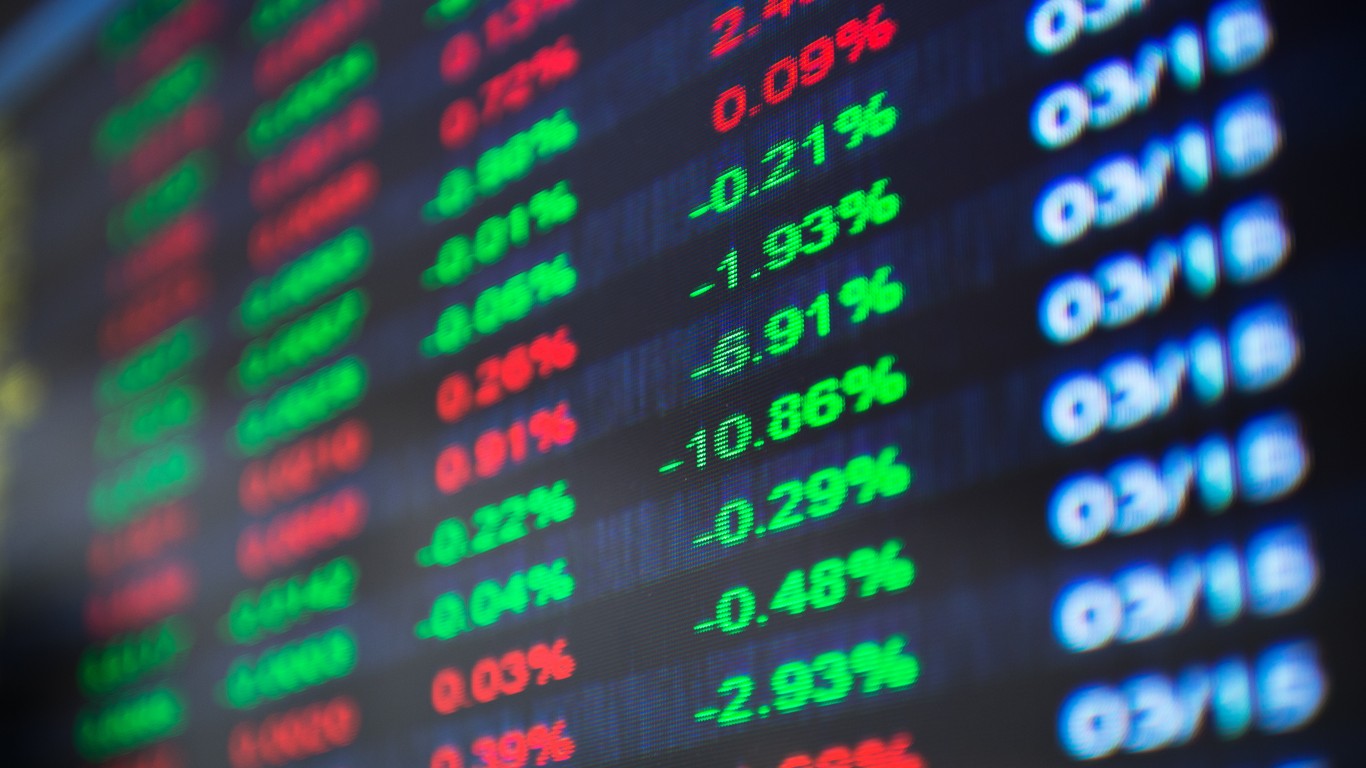
2012
> Total spent: $3,296,720,709 — #10 most since 2008
> Number of lobbyists: 12,169
> Largest lobbying contract: $2,560,000 (Blackstone Group)
After spending $5.2 million in 2011, Blackstone cut its lobbying budget to $2.6 million in 2012. The carried interest rate loophole, which allows private equity firms to be taxed at the lower capital gains rates rather than at personal income tax rates, still remains. With fierce lobbying from private equity firms a fix has again not been introduced in the recent budget.

2013
> Total spent: $3,236,224,185 — #12 most since 2008
> Number of lobbyists: 12,080
> Largest lobbying contract: $6,300,243 (Tides Advocacy)
Tides Advocacy describes itself as a group of political, legal, and financial experts working for social justice. 2013 was its strongest year for lobbying, having spent $6.3 million that year. In 2020, the group spent less than $200,000 on lobbying.
[in-text-ad]
2014
> Total spent: $3,255,031,739 — #11 most since 2008
> Number of lobbyists: 11,790
> Largest lobbying contract: $3,730,000 (Gila River Indian Community)
The Gila River Indian Community is a Native American reservation within the Phoenix Metro area. It is home to two tribes: Akimel O’odham (Pima) and Pee-Posh (Maricopa). At issue was a proposal by another tribe, the Tohono O’odham Nation, to open a casino in Glendale, Arizona, per Politico. The Gila River Indian Community operates a casino in that area and wanted the competing gaming outlet blocked. Republicans in the House and Senate, including the late Sen. John McCain, backed the Gila River Indian Community in the fight.
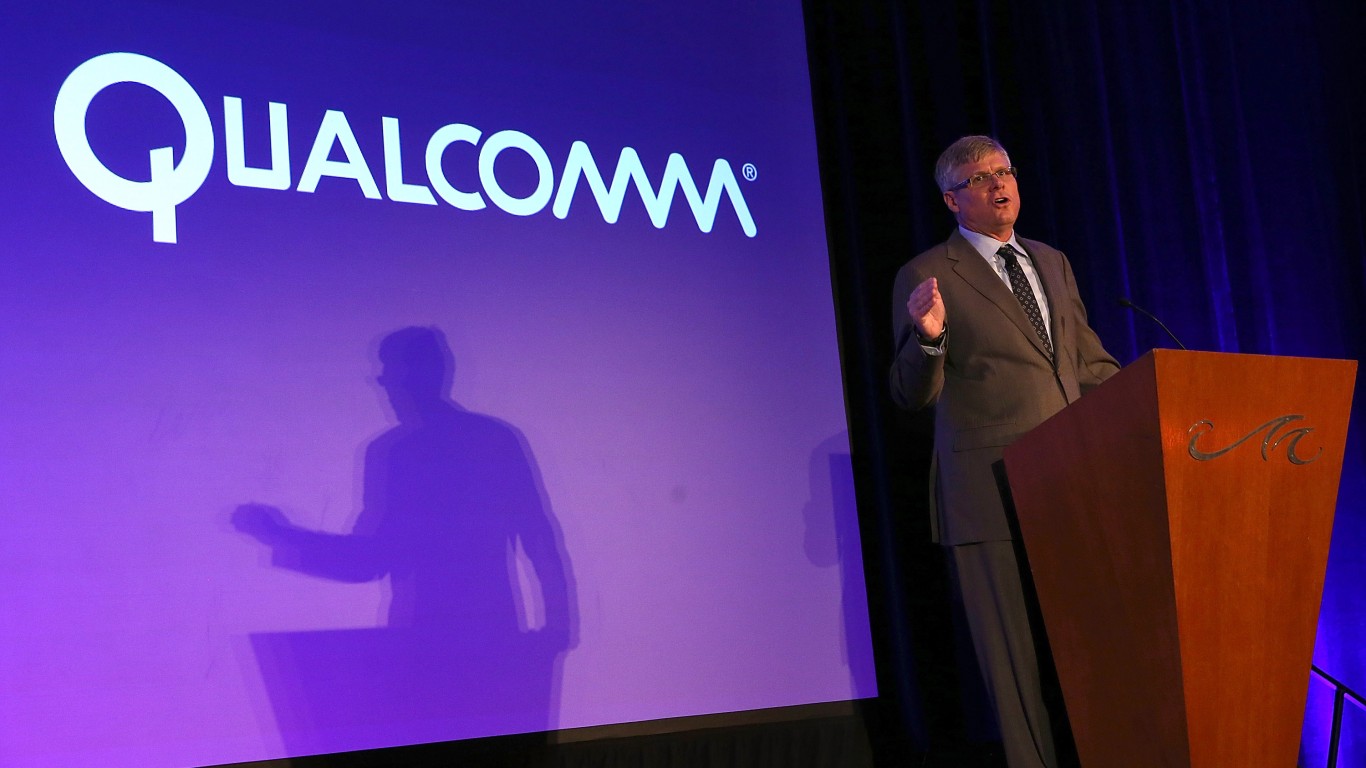
2015
> Total spent: $3,224,425,109 — #13 most since 2008
> Number of lobbyists: 11,526
> Largest lobbying contract: $3,630,000 (Qualcomm Inc)
In 2015, semiconductor maker Qualcomm lobbied Congress for easing of visa restrictions so the company could hire more foreign-born engineers. However, as the Los Angeles Times pointed out, Qualcomm’s lobbying efforts coincided with the company laying off 15% of its workforce, or 5,000 workers.
2016
> Total spent: $3,155,150,420 — #14 most since 2008
> Number of lobbyists: 11,200
> Largest lobbying contract: $2,770,000 (Gila River Indian Community)
The Keep the Promise Act of 2015 was introduced in the House of Representative in March 2015. The act would have restricted gaming activities in the Phoenix area, a proposal backed by the Gila River Indian Community. The community was looking to stop another tribe from building a casino in Glendale, Arizona, which is 9 miles from Downtown Phoenix. The proposal failed in the House. In 2017, the Tohono O’odham Nation reached an agreement with the state of Arizona to open the Desert Diamond Casino West Valley near Glendale. As part of the agreement, the tribe said it would not open any other gaming outlets in Metro Phoenix.
[in-text-ad-2]
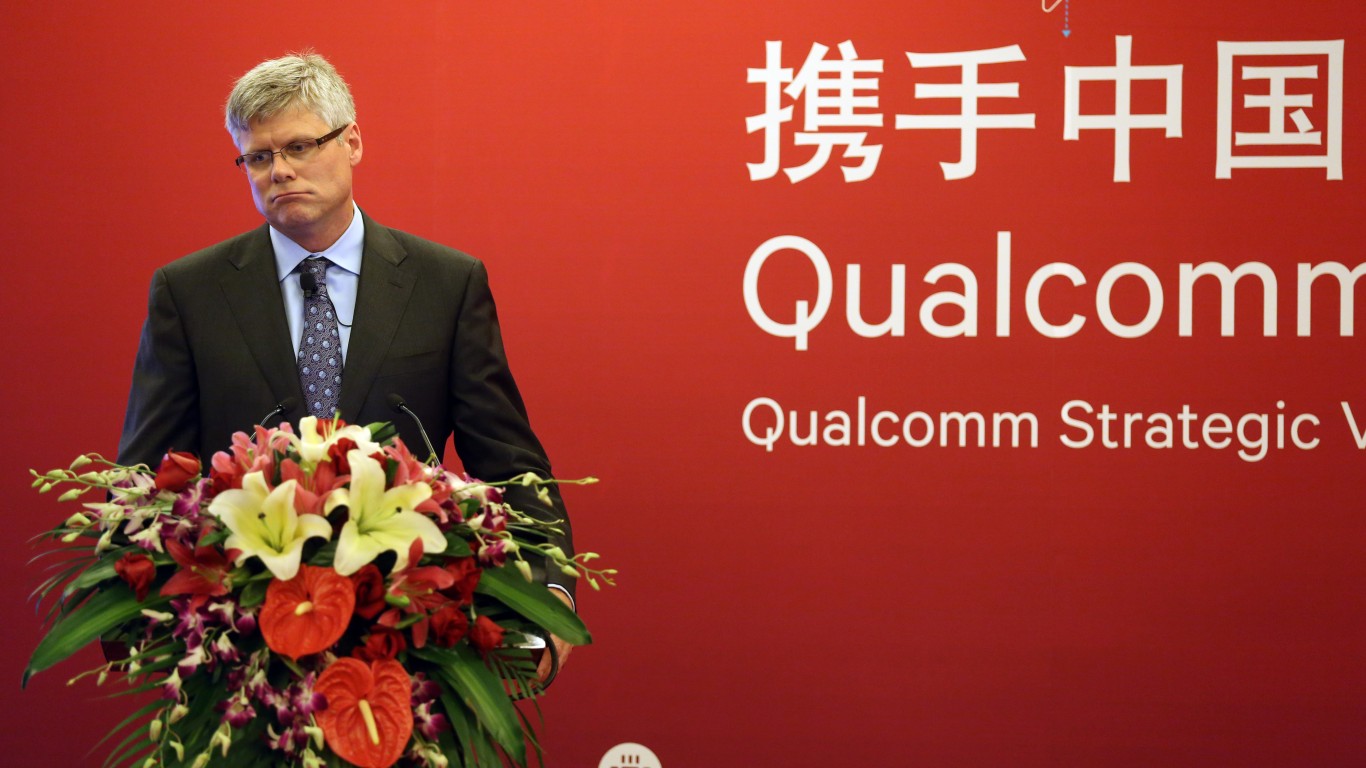
2017
> Total spent: $3,375,644,530 — #7 most since 2008
> Number of lobbyists: 11,555
> Largest lobbying contract: $3,840,000 (Qualcomm Inc)
Qualcomm’s lobbying efforts in 2017 centered around the growing competition between U.S. tech companies and China. A New York Times article notes Qualcomm was fined $975 million by the Chinese government for anticompetitive practices. The company agreed to lower its prices in China and move its high-end manufacturing to partners in the country. At the time, Congress considered legislation to block China from acquiring U.S. technology. Conversely, tech companies like Qualcomm argued the only way to gain access to the lucrative Chinese market is through joint ventures.

2018
> Total spent: $3,459,989,585 — #6 most since 2008
> Number of lobbyists: 11,648
> Largest lobbying contract: $4,080,000 (Qualcomm Inc)
In March 2018, Singapore-based Broadcom Ltd.’s bid for Qualcomm was first scuttled when the Committee on Foreign Investment began reviewing the deal for potential national security implications. Eventually, on March 12, President Donald Trump killed the proposed deal by executive order, citing security concerns. According to Reuters, the acquisition could have hurt the U.S. effort to develop 5G wireless technology. Qualcomm has previously been fighting against Broadcom’s hostile takeover.
[in-text-ad]
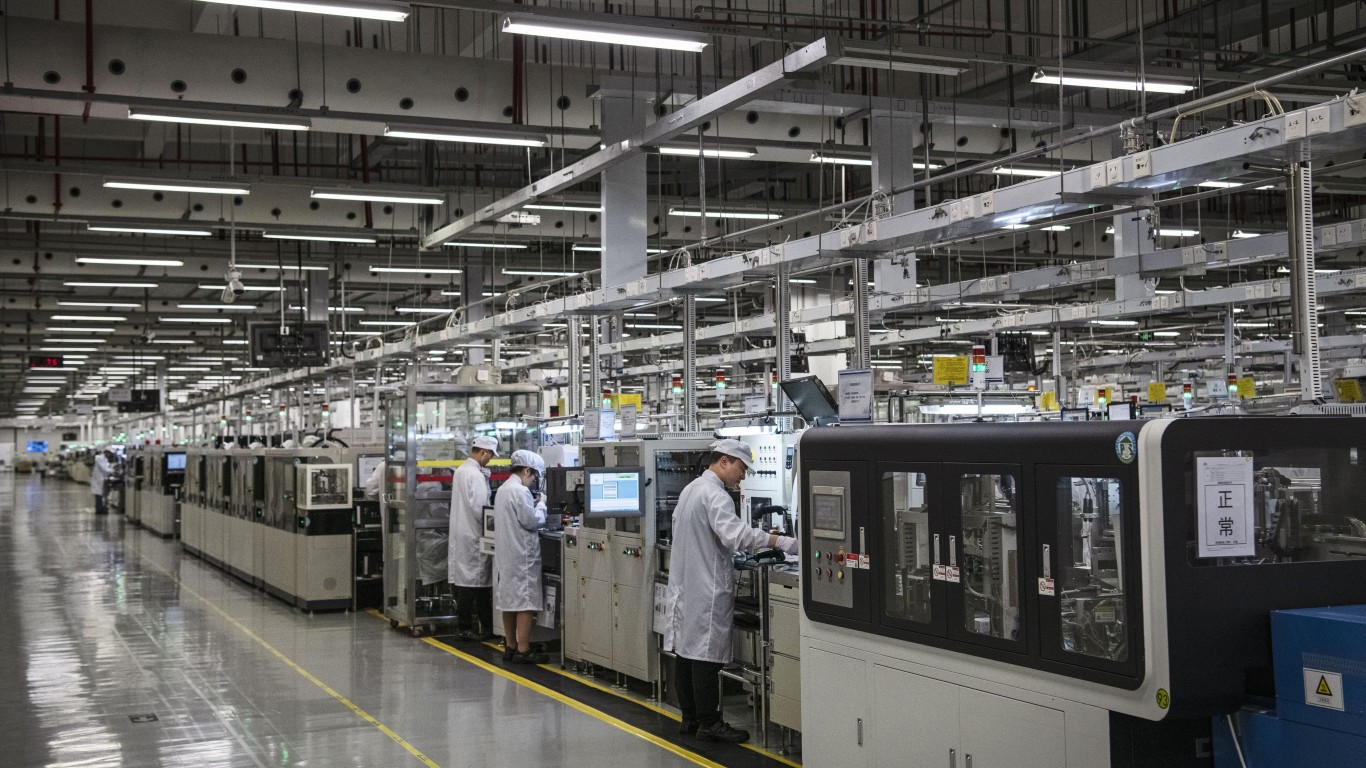
2019
> Total spent: $3,510,066,606 — #3 most since 2008
> Number of lobbyists: 11,891
> Largest lobbying contract: $5,010,000 (Qualcomm Inc)
The U.S. government in 2019 banned chip sales to China-based Huawei, the world’s largest telecommunications equipment company, over national security concerns. Qualcomm, along with chipmakers Intel and Xilinx, wanted the ban lifted so it could continue shipping chips to Huawei for manufacturing of phones and smartwatches.

2020
> Total spent: $3,528,078,794 — #2 most since 2008
> Number of lobbyists: 11,533
> Largest lobbying contract: $5,507,688 (New California Republic Co)
New California Republic Co. hired lobbying firm Wilson & Rome in 2020, in a contract worth more than $5.5 million. The New California Republic is a rather mysterious group of Californians who want to break away from the rest of the state. In a statement, the group said, “The current state of California has become governed by a tyranny,” adding that it’s “the Duty of the People who are suffering the long train of abuses and usurpations at the hands of a tyrannical government to abolish and make New a Government.” According to OpenSecrets, New California Republic’s only lobbying spending was in 2020.
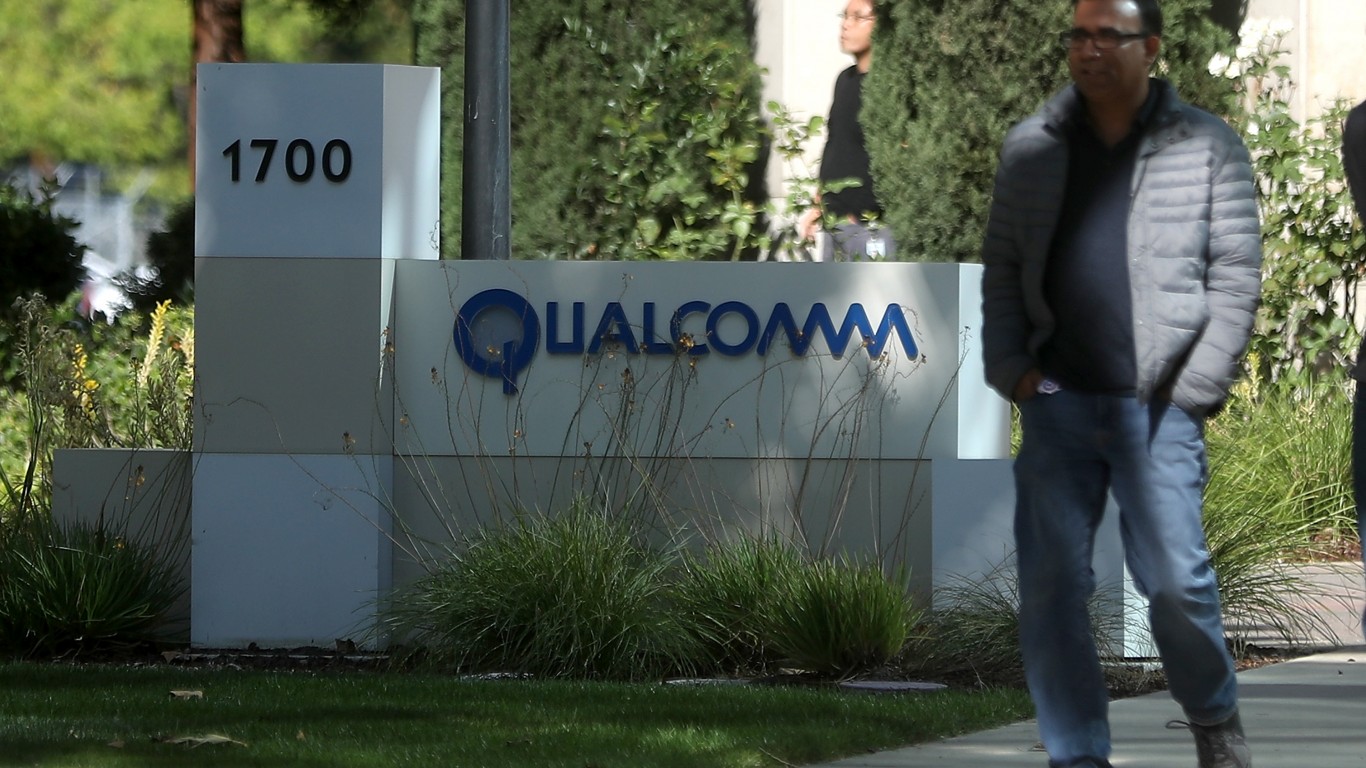
2021
> Total spent: $3,731,598,853 — #1 most since 2008
> Number of lobbyists: 12,136
> Largest lobbying contract: $5,710,000 (Qualcomm Inc)
Qualcomm formed a coalition in 2021 with tech firms Amazon, Google, Apple, Intel, and IBM to lobby Congress for passage of a bill aimed at increasing semiconductor production. The bill, sponsored by Semiconductors in America Coalition, was enacted by Congress and was supported by President Joe Biden, but had not received funding as of May 2021. The bill would set aside $7 billion over five years for semiconductor research and establishment of a National Semiconductor Technology Center.
Are you ready for retirement? Planning for retirement can be overwhelming, that’s why it could be a good idea to speak to a fiduciary financial advisor about your goals today.
Start by taking this retirement quiz right here from SmartAsset that will match you with up to 3 financial advisors that serve your area and beyond in 5 minutes. Smart Asset is now matching over 50,000 people a month.
Click here now to get started.
Thank you for reading! Have some feedback for us?
Contact the 24/7 Wall St. editorial team.